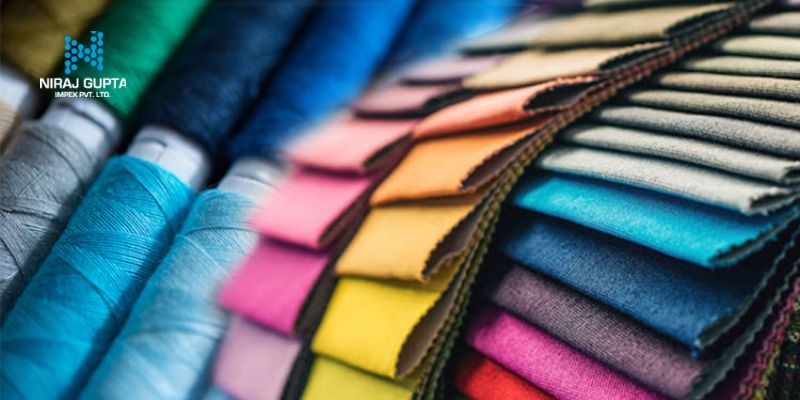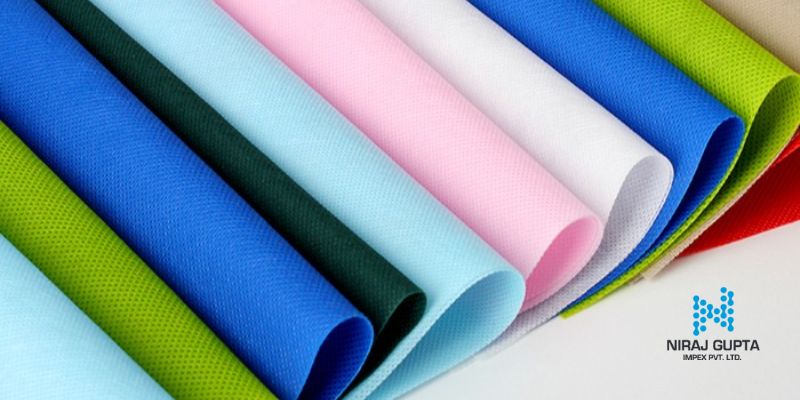The Role of Textile Indentors in Surat's Thriving Textile Industry
Key Takeaways: Textile indentors in Surat are crucial intermediaries, connecting manufacturers with buyers and ensuring smooth transactions. Their significance extends to quality assurance, logistical expertise, and global market expansion, acting as ambassadors for Surat's textiles. These professionals contribute to the industry's diversification, specialising in specific textiles, and provide valuable market intelligence, fostering adaptability to changing global trade regulations. Overall, the collaborative efforts of manufacturers and indentors are essential for sustaining Surat's growth and reputation as a dynamic global textile hub.
Surat, often called the "Silk City" and the "Textile Hub of India," has earned its reputation as a powerhouse in the textile industry. With a rich history dating back centuries, Surat has evolved into a vibrant centre for textile manufacturing, trading, and export among the key industry's key players, who play a pivotal role in facilitating the smooth functioning of Surat's thriving textile sector.
Understanding Textile Indentors:
Textile indentors act as intermediaries between textile manufacturers and buyers, connecting the dots in the complex web of the textile supply chain. Their primary responsibility is facilitating trade by negotiating deals, ensuring quality standards, and managing the logistical aspects of the textile business. Indentors often specialise in specific types of textiles, such as synthetic fabrics, cotton, silk, or blends, catering to the diverse needs of the industry.
Negotiating Deals and Price Management:
One of the significant contributions of textile indentors is their expertise in negotiating deals that benefit both manufacturers and buyers. With a deep understanding of market dynamics, they help secure fair prices for textiles, considering factors such as raw material costs, production expenses, and prevailing market trends. This strategic negotiation ensures that manufacturers receive a reasonable return on their investment while buyers acquire quality textiles at competitive prices.
Quality Assurance:
Maintaining high-quality standards is crucial in the textile industry, where product excellence directly impacts market competitiveness. Textile indentors act as quality assurance agents, inspecting production processes, monitoring adherence to industry standards, and conducting quality checks on finished goods. This role not only safeguards the reputation of manufacturers but also assures buyers of the reliability and consistency of the textiles they acquire from Surat.
International Market Penetration:
Surat's textile industry is not limited to domestic markets; it has a strong global presence. Textile indentors act as international business ambassadors, promoting Surat's textiles to diverse markets. Their understanding of global trade regulations, market demands, and cultural nuances makes them instrumental in expanding the reach of Surat's textile products worldwide.
Diversification and Specialisation:
Textile indentors in Surat contribute to the industry's diversification by specialising in specific types of textiles or niche markets. Whether it is intricate traditional fabrics, cutting-edge technical textiles, or eco-friendly materials, indentors connect manufacturers with buyers seeking specialised products. This diversification enhances Surat's competitiveness in the global textile market by catering to various customer preferences.
Market intelligence and trend forecasting:
Textile indentors serve as valuable sources of market intelligence, constantly monitoring global trends, consumer preferences, and emerging technologies. Their insights help manufacturers stay ahead of the curve, enabling them to adapt production processes to meet evolving market demands. By incorporating trend forecasting into their decision-making, textile indentors contribute to the industry's innovation and relevance on the global stage.
Logistics and Supply Chain Management:
Efficient logistics and supply chain management are essential to a thriving textile industry. Textile indentors are key in coordinating textile products' transportation, storage, and delivery. Streamlining these processes contributes to timely ailment order fulfilment and reduction. This efficiency enhances the overall competitiveness of Surat's textile industry on the global stage.
Risk Mitigation and Financial Facilitation:
The textile industry has market fluctuations, currency exchange rates, and geopolitical uncertainties. Textile indentors are critical in mitigating these risks by giving manufacturers valuable insights into market conditions. Additionally, they facilitate financial transactions, helping manufacturers navigate international payment processes and ensuring a smooth flow of funds. This financial facilitation contributes to the stability and growth of Surat's textile enterprises.
Networking and Relationship Building:
Successful business in the textile industry often relies on strong relationships and networking. Their extensive industry knowledge and connections help textile indentors build and nurture relationships between manufacturers, suppliers, and buyers. These networks create a collaborative ecosystem that fosters trust, reliability, and long-term partnerships, ultimately strengthening Surat's position as a textile industry leader.
Adaptability to Changing Regulations:
Global trade is subject to regulatory changes, and staying compliant with evolving standards is crucial for the textile industry. Textile indentors stay informed about international trade regulations, tariffs, and compliance requirements, ensuring that manufacturers in Surat can navigate complex legal landscapes. This adaptability to changing regulations is vital for sustaining the industry's growth and competitiveness in the global market.
Conclusion:
In Surat's thriving textile industry, the role of textile indentors cannot be overstated. These intermediaries bridge the gap between manufacturers and buyers, ensuring smooth transactions, maintaining quality standards, and contributing to the industry's global success. As Surat continues to evolve as a textile powerhouse, the collaborative efforts of manufacturers and indentors will undoubtedly play a crucial role in sustaining its growth and reputation as a textile hub.





Comments
Post a Comment